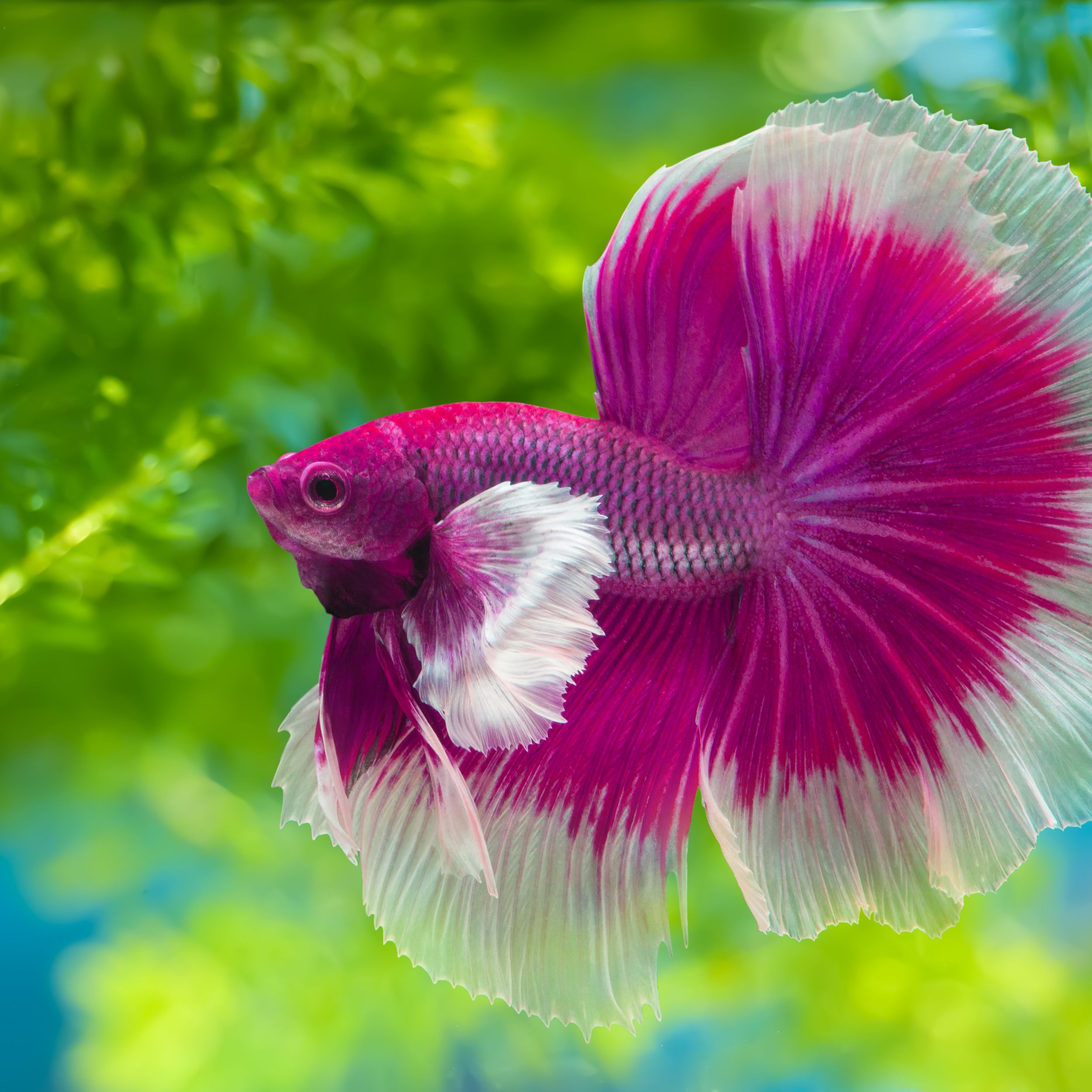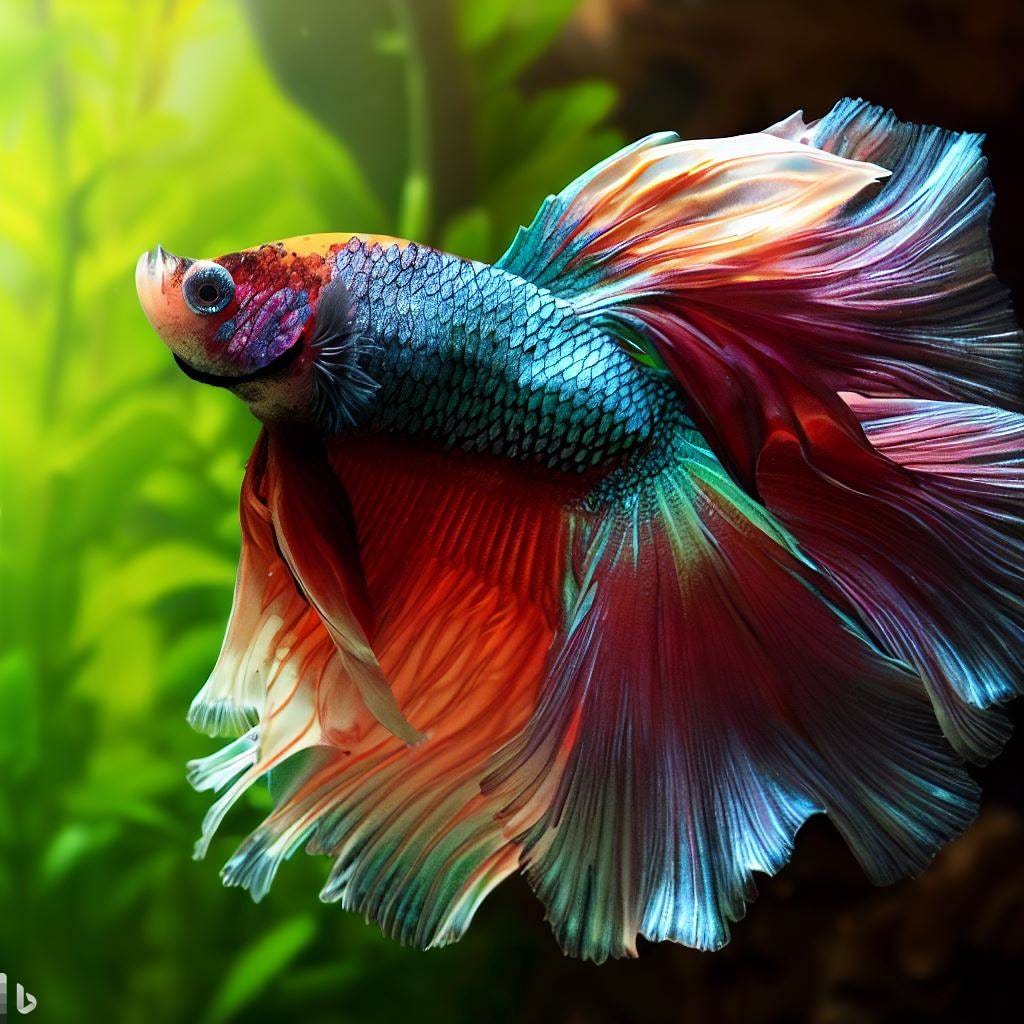Betta Fish Treatment: Necessary Tips for a Healthy and Pleased Family Pet
Betta Fish Treatment: Necessary Tips for a Healthy and Pleased Family Pet
Blog Article
Everything About Betta Fish: Understanding Their Special Needs, Actions, and the most effective Practices for Optimal Care
Comprehending the one-of-a-kind needs and behaviors of Betta fish is vital for any type of aquarist looking to supply ideal treatment. betta fish. As we check out these components further, the implications for both amateur and seasoned fish keepers end up being progressively obvious, elevating concerns about exactly how finest to suit these amazing fish in our homes.
Betta Fish Overview
Although often appreciated for their vibrant shades and flowing fins, Betta fish, clinically recognized as Betta splendens, are intricate creatures that need details treatment to grow. Stemming from Southeast Asia, these freshwater fish are recognized for their territorial nature and unique habits. Betta fish show sex-related dimorphism, with males displaying extra brilliant shades and longer fins than ladies.
Their aggressive tendencies, specifically among males, demand mindful consideration when real estate them. Bettas are commonly kept in single-specimen tanks to prevent territorial disagreements. They can exist side-by-side quietly with certain suitable species in bigger neighborhood tanks, supplied the atmosphere fulfills their requirements.

To make certain ideal treatment, aquarists should understand their unique behavioral traits, dietary requirements, and habitat demands. betta fish. With proper attention, Betta fish can display their vivid individualities and prosper in a well-maintained aquarium setup
All-natural Environment and Setting
Betta fish flourish in a diverse range of all-natural environments, mostly discovered in the shallow waters of Southeast Asia, including rice paddies, swamps, and slow-moving streams. These settings are identified by cozy temperatures, commonly in between 75 ° F and 82 ° F(24 ° C and 28 ° C ), and a pH level ranging from 6.5 to 7.5, which is optimal for their health and wellness and wellness.
In their natural environments, Betta fish are accustomed to thick greenery, supplying both shelter and reproducing premises. The presence of plants such as floating water lilies and thick yards not just provides defense from killers but likewise adds to the oxygenation of the water, which is crucial for their respiratory system requirements. Additionally, these settings typically have locations of still water, enabling Betta fish to exhibit their natural behaviors such as bubble nesting.
Recognizing the natural environment of Betta fish is vital for aquarium lovers. Replicating these problems-- through water temperature level, pH balance, and the incorporation of online plants-- can considerably enhance the general wellness and durability of these captivating fish, ensuring they grow in a home aquarium setup.
Social Behavior and Interactions
Understanding the social habits and communications of Betta fish is important for effective fish tank monitoring. Betta fish, or Siamese fighting fish, are understood for their unique behavioral characteristics, identified mainly by territoriality and aggressiveness.
Conversely, female Bettas display much less hostile behavior and can exist together in groups, called sororities, if introduced correctly. It is vital to check their interactions closely, as hierarchy and dominance can lead to problems. Recognizing the characteristics within a Betta neighborhood is important; developing concealing areas and making sure adequate space can reduce aggression.
On top of that, Betta fish might likewise show interest and social actions in the direction of various other types. While they can coexist with particular non-aggressive tank mates, it is vital to pick suitable species to avoid stress and aggressiveness. In general, recognizing these social communications is essential to fostering an unified aquarium setting for Betta fish.
Necessary Care Standards
Giving appropriate treatment for Betta fish is vital to their health and wellness. Normal water changes-- around 25% once a week-- help preserve water top quality.
Betta fish require an appropriate container dimension; a minimum of 5 gallons is suggested to give adequate area for swimming and hiding. Include decors and plants to develop a stimulating More hints atmosphere, yet avoid sharp items that might damage their delicate fins.

Last but not least, ensure the container is outfitted with a filter to maintain the water clean, but make use of a mild filter to avoid solid currents that can emphasize the fish. By complying with these necessary care guidelines, proprietors can promote a healthy and vivid Betta fish.
Common Health And Wellness Issues and Solutions
In the care of Betta fish, awareness of usual health and wellness problems look here is important for keeping their well-being. One prevalent problem is fin rot, commonly triggered by bad water high quality or bacterial infection. Signs consist of torn or stained fins. To treat fin rot, improve water problems and take into consideration using a broad-spectrum antibiotic.
An additional common disorder is ich, a parasitic infection defined by white spots on the fish's body (betta fish). Treatment entails enhancing water temperature level and adding aquarium salt to the container, as this can assist remove the parasite
Swim bladder condition is additionally frequently observed, causing buoyancy troubles. This condition may emerge from overfeeding or irregular bowel movements. A fasting period of 24-48 hours, followed by a diet plan of blanched peas, can give alleviation.
Lastly, bettas may experience velvet disease, suggested by a gold dust-like great site look on their skin. Therapy generally needs medication specifically created for exterior bloodsuckers, alongside improved storage tank hygiene.
Routine surveillance of water criteria, keeping a tidy setting, and providing a balanced diet are important safety nets. By addressing these health issues promptly, Betta fish can lead much healthier, extra dynamic lives.
Final Thought
In recap, successful betta fish treatment needs an understanding of their distinct needs and actions. Routine monitoring of wellness and water high quality, along with a well balanced diet plan, adds to the durability and vibrancy of betta fish.
Report this page